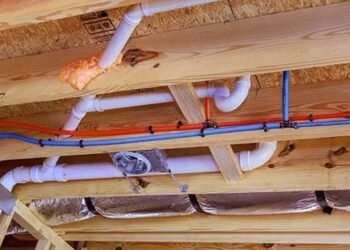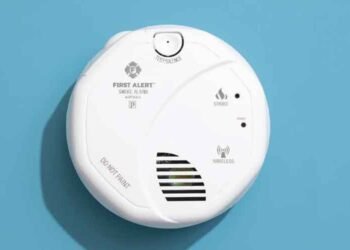If you’ve ever found yourself battling with a door that slams shut unexpectedly or struggling to keep a heavy door open while carrying something, you know how frustrating it can be. That’s where door closer hardware comes into play. These handy devices ensure your doors close gently and securely without you needing to give them a second thought. But with so many options out there, how do you choose the right one for your space? In this guide, we’ll walk you through everything you need to know about door closer hardware, from types and installation tips to benefits and maintenance.
What is a Door Closer?
A door closer is a mechanical device that ensures your door closes automatically after being opened. It’s often powered by hydraulic or pneumatic mechanisms that control the speed, force, and smoothness of the closing action. This simple but effective tool can be a game-changer in homes and businesses, providing both convenience and safety.
Different Types of Door Closers
There are several types of door closers, each suited for different needs. Here’s a quick rundown of the most common types:
- Surface-Mounted Closers: These are installed on the surface of the door or frame and are visible. They’re popular for residential and commercial spaces where aesthetics aren’t a top priority.
- Concealed Closers: For a cleaner, more modern look, concealed door closers are built into the door or frame, keeping everything hidden from view.
- Overhead Closers: These are mounted above the door frame and are often used in areas with heavy foot traffic or larger doors, such as in commercial buildings or offices.
Each type has its own advantages, so the right choice will depend on factors like how often the door is used, the space’s aesthetic, and your budget.
How to Choose the Right Door Closer for Your Needs
When choosing a door closer, it’s important to consider a few key factors:
- Door Size and Weight: Make sure the door closer you choose is strong enough to handle the weight and size of your door. If it’s too weak, the door may not close properly or could wear out quickly.
- Traffic Volume: High-traffic areas require more durable, reliable closers that can handle frequent use. For residential spaces or low-traffic areas, a less heavy-duty option may suffice.
- Environment: The conditions where the door will be used matter. For example, outdoor doors might need a closer that can withstand harsh weather conditions.
Installing a Door Closer
Installing a door closer is typically straightforward, but it does require some attention to detail. Here’s a quick breakdown:
- Mount the Closer: Attach the closer to the door frame or door itself, following the manufacturer’s instructions. Make sure it’s securely in place.
- Adjust Speed and Force: Fine-tune the closer to make sure the door closes at the right speed and with the right force. This prevents it from slamming or closing too slowly.
- Test the Door: Open and close the door several times to make sure everything works smoothly. If it’s not working as it should, check the settings and adjust them accordingly.
Why Use a Door Closer?
There are several benefits to installing a door closer in your home or business:
- Safety: Door closers prevent doors from slamming shut, reducing the risk of injury and protecting both the door and surrounding walls.
- Convenience: With a door closer, you don’t have to worry about manually closing doors, especially in high-traffic areas or when your hands are full.
- Energy Efficiency: A properly functioning door closer helps keep doors tightly shut, which can reduce heat or air conditioning loss – making your space more energy-efficient.
Common Door Closer Issues and How to Fix Them
Sometimes, door closers can run into problems. Here are a few common issues and quick fixes:
- Leaking Fluid: If you notice fluid leaking from the closer, it could be a sign that the seal is damaged. In this case, it might need to be replaced.
- Slow Closing: If the door is closing too slowly, it’s usually an adjustment issue. Try increasing the closing speed using the closer’s adjustment valve.
- Noisy Operation: A noisy door closer could mean there’s dirt or debris in the mechanism. Clean it regularly to prevent this.
Door Closers for Every Budget
At DK Hardware, we understand that everyone has different needs and budgets. Whether you’re looking for a simple, budget-friendly option or a high-end closer for a commercial space, we’ve got a variety of models to suit your needs. Our door closers are built to last, offering reliable performance at affordable prices. If you’re ready to shop, visit our Door Closer Collection to find the perfect match for your space.
Eco-Friendly Door Closers
If you’re environmentally conscious, you’ll be happy to know that many modern door closers are designed with sustainability in mind. From energy-efficient options that help with insulation to those made from eco-friendly materials, there are plenty of choices that can reduce your carbon footprint while still providing excellent performance.
Conclusion: Find the Right Door Closer for Your Needs
Choosing the right door closer doesn’t have to be complicated. By considering your door’s size, weight, and the environment it will be used in, you can select a closer that’s both effective and durable. Whether you need a simple, surface-mounted closer for your home or a heavy-duty model for a commercial building, DK Hardware has a wide selection to choose from.












